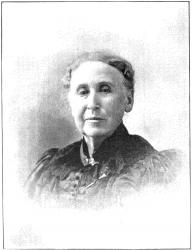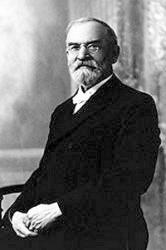Planning worship?
Check out our sister site, ZeteoSearch.org,
for 20+ additional resources related to your search.
- |
User Links
Person Results
‹ Return to hymnal


Export as CSV
Sarah Judson
1803 - 1845 Hymnal Number: d266 Author of "Proclaim the lofty praise" in The Temple Harp Judson, Sarah, née Hull, daughter of Ralph Hull, was born at Alstead, New Haven, Nov. 4, 1803, and married first to the Rev. George D. Boardman, and afterwards to Dr. Judson. She died at St. Helena, Sept. 1, 1845. Her fine missionary hymn, “Proclaim the lofty praise," is in W. Urwick's Dublin Collection, 1829, No. 142, in 4 stanzas of 8 lines. Its appearance in America prior to this has not been traced. [Rev. F. M. Bird, M.A.]
--John Julian, Dictionary of Hymnology (1907)
=====================
Judson, Sarah Hall. (Alstead, New Hampshire, November 4, 1803--September 1, 1845, St. Helena Island). Baptist. Daughter of Ralph and Abiah Hall. First married to George Dana Boardman, missionary to Burma. Three children were born to this marriage. After her husband's death, she became the second wife of Dr. Adoniram Judson (1834). En route to Burma and shortly before he death, Mrs. Judson penned nine stanzas of a parting hymn, the last of which voices the pleas:
Then gird thine armor on, love;
Nor faint thou by the way,
Till Buddh shall fall, and Burma's sons
Shall own Messiah's sway.
Her most noted hymn "Proclaim thy lofty praise," first appeared in Urwick's Dublin Collection (1829), and was later printed in The Psalmist (1843). A fuller biography is to be found in (1) Wyeth, Walter N., Sarah B. Judson, A Memorial (Philadelphia, Pennsylvania, The Author, 1889), and (2) Wayland, Francis, Memoir of the Life and Labors of the Rev. Adoniram Judson (Boston: Phillips Sampson Co., 1854).
--Paul R. Powell, DNAH Archives
Sarah Judson
Annie Wittenmyer

1827 - 1900 Person Name: Annie Wittenmeyer Hymnal Number: d153 Author of "O come to this valley of blessing so sweet" in The Temple Harp Sarah Ann Turner; b. 8/26/1827; d. 2/2/1900; Wittenmyer, Annie (Turner) 1827-1900; usage: Annie Wittenmyer
Annie Wittenmyer
Richard Burdsall
1735 - 1824 Hymnal Number: d323 Author of "The voice of free grace cries escape" in The Temple Harp Burdsall, Richard, for many years a Wesleyan minister, was born in 1735, and died in 1824. To his Memoirs, published at York, n.d., is appended a hymn beginning, "Now Christ He is risen, the Serpent's head is bruised." The hymn “The voice of free grace cries—'Escape to the mountain,'" begins with stanza ii. of this hymn, but with alterations. In some American hymnals, including Hatfield's Church Hymn Book, 1872, Burdsall's two stanzas are expanded into five, but by whom we cannot say.
--John Julian, Dictionary of Hymnology, Appendix, Part II (1907)
Richard Burdsall
Johann Samuel Patzke
1727 - 1787 Person Name: J. S. Patzke Hymnal Number: d262 Author of "Praise the Lord, when blushing morning" in The Temple Harp Patzke, Johann Samuel, was born Oct. 24, 1727, at Frankfurt a. Oder, in the house of his grandfather, his father being an excise officer at Seelow, near Frankfurt. He entered the University of Frankfurt in 1748, and in 1751 went to Halle. After completing his studies he returned to Frankfurt as a candidate of Theology. In 1755, by the recommendation of the chief court preacher, F. S. G. Sack, of Berlin, he was appointed by the Margrave Heinrich von Schwedt, as pastor at Wormsfelde and Stolzenburg, near Landsberg on the Warthe. In 1758 he had to flee before the invasion of the Russian troops under General Fermor, and on his return found everything in desolation. In the beginning of 1759 he became pastor at Lietzen, near Frankfurt. Finally, by the recommendation of the Margrave, he was appointed, in 1762, preacher at the Church of the Holy Spirit, in Magdeburg, where he became, in 1769, pastor and senior of the Altstadt clergy. He died at Magdeburg, Dec. 14, 1787 (Koch, vi. 293; Allgemeine Deutsche Biographie xxv. 238, &c).
Patzke was a man of considerable talents and of a lovable nature. He was also very popular as a preacher. His poetical work began very early, his first volume of Gediche appearing at Halle in 1750. His hymns appeared mostly in his weekly paper (the first of the kind in Magdeburg) entitled Der Greis, published from 1763 to 1769, and in his Musihalische Gedichte, Magdeburg and Leipzig, 1780. The latter contains a series of cantatas which had been set to music by Johann Heinrich Rolle, music director at Magdeburg, and performed during various seasons of winter concerts there. The only one of his hymns (over 20 in all) which has passed into English is:—
Lobt den Herrn I die Morgensonne. Morning. Published in 1780, as above, p. 73, in 3 st. of 4 1., as the opening hymn of his cantata, entitled Abel's Tod. Included, as No. 1075, in the Stollberg bei Aachen Gesang-Buch, 1802.
This cantata is in 1780 dated 1769. It appeared, set to music by Rolle, as Der Tod Abels, ein musikalisches Drama, at Leipzig, 1771; the hymn above being at p. 1, entitled, "Hymn of Praise of the children of Adam (1780 ed. of Abel) in their bower." The cantata is itself founded on Der Tod Abels, by Salomon Gessner [born at Zürich, April 1, 1730; died at Zürich, March 2, 1787], which first appeared at Zürich in 1758, became exceedingly popular, and was translated into various languages, one of the English versions passing through more than 20 editions. The passage used by Patzke for his hymn is a portion of Book i., viz. a part of Abel's Song of Praise, sung when he was in his bower with his wife Thirza, and which begins, "Weiche du Schlaf von jedem Aug." The translations in common use from Patzke are:—
1. Praise the Lord, when blushing morning. This appears, without name of author, in the American Unitarian Cheshire Assoc. Collection, 1844, as No. 692; and the Book of Hymns, 1846 ; and in England in E. Courtauld's Collection, 1860. It is in 4 st., st. i., ii., being fairly close translations of st. i., ii., of the German, while st. iii., iv., are practically original English stanzas.
2. Praise the Lord! the sun of morning. This is a full but free version by Dr. J. A. Seiss, as No. 48 in the Sunday School Hymn Book, Philadelphia, 1873, of the Gen. Council of the Lutheran Church in America. [Rev. James Mearns, M.A.]
-- John Julian, Dictionary of Hymnology (1907)
Johann Samuel Patzke
William Fairfield Warren

1833 - 1929 Person Name: W. F. Warren Hymnal Number: d256 Author of "Out on an ocean all boundless we ride" in The Temple Harp Warren, William Fairfield, D.D., was born at Williamsburg, Massachusetts, in 1833, and graduated at the Wesleyan University in 1853. After spending some time in Germany, he was appointed Professor of Systematic Theology in the Methodist Episcopal Mission Institute at Bremen, in 1861. Returning to America in 1866, he held some important appointments there, ultimately becoming President of Boston University, in 1873. His hymn, "I worship Thee, O Holy Ghost" (Whitsuntide), was contributed to the American Methodist Episcopal Hymnal, at the request of the editorial committee, in 1877, and was published therein in 1878. It has passed into other collections.
-- John Julian, Dictionary of Hymnology (1907)
==========================
Warren, William, D.D. (Williamsburg, Massachusetts, March 13, 1833--December 6, 1929). He prepared for college at East Greenwich Academy, graduated A.B., Wesleyan University, took training at Andover Theological Seminary, and continued his studies at the Universities of Berlin and Halle. He was the recipient of honorary degrees from Boston, Wesleyan, and Ohio Wesleyan Universities. Ordained a Methodist Episcopal minister in 1855, after preaching in Boston for five years he returned to Germany where for a like term of years he was Professor of Systematic Theology at Mission Institute, Bremen, which later became Martin Institute at Frankfort. He returned to Boston to occupy a similar professorship at the Theological Seminary and to become Acting President when the Methodist Biblical Institute moved there from Concord, New Hampshire. His return gave impetus to the plan under way which eventuated the establishment of Boston University in 1869. Becoming President of the University in 1873, he was Dean of its School of Theology, 1903-1911, and made President Emeritus in 1923.
--Robert G. McCutchan, DNAH Archives
William Fairfield Warren
Francis Linley
1774 - 1800 Person Name: Linley Hymnal Number: d276 Author of "Say, how may earth and heaven unite" in The Temple Harp Born: 1771, Doncaster, Yorkshire, England.
Died: September 13, 1800, at his mother’s house in Doncaster.
Buried: Doncaster, Yorkshire, England.
Blind from birth, Linley studied with Edward Miller, organist at Doncaster Parish Church, and later (being the successful candidate among 17 competitors) became organist of St. James Chapel, Pentonville, London. He married a well-to-do blind lady, and around 1797 they purchased Bland’s music business in Holborn, which was unsuccessful. He was also for some time music agent for John Watlen of Edinburgh. After sustaining great financial losses through the treachery of a friend, and subsequently made a voyage to America (being succeeded by as chapel organist by William Hodsoll), where his performances and compositions brought him some notice. He returned to Doncaster in 1799.
Sources:
Wilson, p. 296
http://www.hymntime.com/tch/bio/l/i/n/linley_f.htm
Francis Linley


 My Starred Hymns
My Starred Hymns


